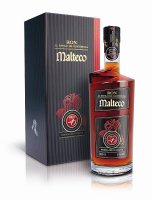Port and fortified wines (30)
Classic fortified wines are sweet with a higher residual sugar and alcohol content. These include Madeira, Port and sherry. Classic fortified wines are sweet with a higher residual sugar and alcohol content. These include Madeira, Port and sherry. Read more
Graham's
20 Y.O. Tawny Portfortifikované víno red - sweet - 0,75l


Graham's
Six Grapes Reserve Portfortifikované víno red - sweet - 0,75l

Cockburn's Port
Special Reserve Portfortifikované víno red - sweet - 0,75l
Blandy's Madeira
Rainwater Medium Dryfortifikované víno white - sweet - 0,75l
Quinta do Crasto
Vintage Portofortifikované víno red - sweet - r2019 - 0,75l
Casoni
Vermouth aceto balsamico di Modena IGP 18%fortifikované víno red - 0,75l
Quinta do Crasto
Finest Reserve Portofortifikované víno red - sweet - 0,75l
Blandy's Madeira
Duke of Clarence Richfortifikované víno white - sweet - 0,75l
Port and fortified wines
Naturally sweet wines
The first group are wines that have a natural alcohol content. For example Auslese, Trockenbeerenauslese or Beerenauslese from the Riesling variety. Even a lighter alternative with 20 grams of residual sugar, mild acidity and an alcohol content of about 8% can be an excellent dessert wine if they are not too sweet.
Naturally sweet wines with botrytis
Botrytis is a fungus that perforates the skin of grapes, allowing water to evaporate from the berry. Typical Slovak wines are from the Tokaj region.
Straw wines, Passito
The second group are wines whose grapes are dried after harvesting. A typical representative is Amarone della Valpolicella and Passito from Italy. In both versions, the ripe grapes are stored on straw mats for several weeks or months. Then the grapes are pressed and stored with a high sugar content and a natural alcohol content of about 15%. In Slovakia, this type of winemaking is called straw wine.
Fortified wines
The third group of wines to which alcohol is added to stop fermentation. In some variants of these wines, the ripe grapes are dried in the sun for several weeks. Port wine /Graham's/, Sherry /Ximenéz-Spínola, Romate/ and Madeira /Blandy's/
Fortified and sweet wines by the sailor's ways.
It was mainly the English who transported large quantities of wine by sea. For this reason, the wines were enriched with alcohol, because it acts as a stabilizer. During the transport of Madeira wines, it was found that the wines benefited from the long journey to the distant colonies, exposed to the elements and above all to the heat.




 facebook
facebook
 Contact us
Contact us





